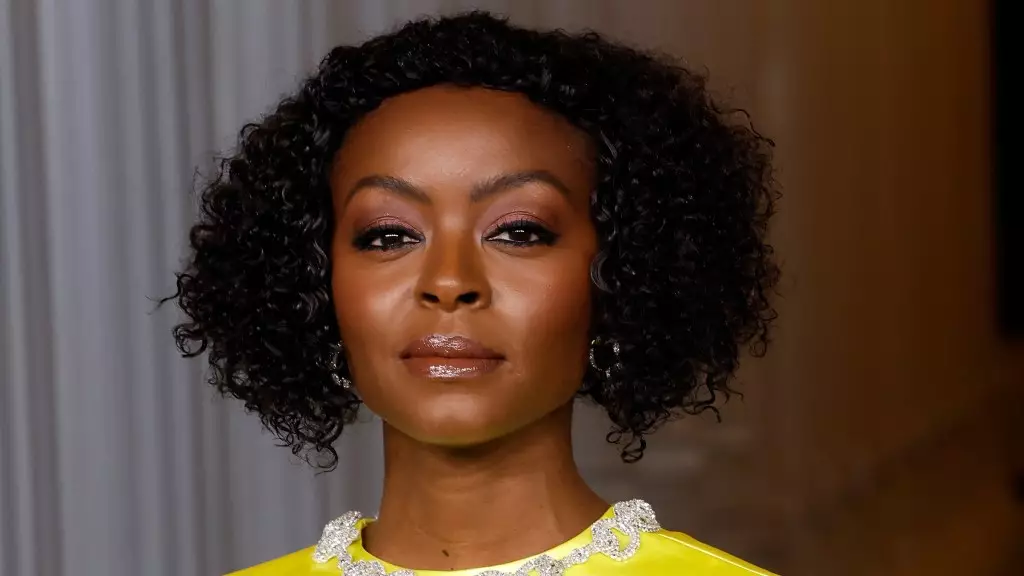Danielle Deadwyler, an actress whose powerful performance in “Till” was notably overlooked come award season, is now approaching the upcoming Oscars with a renewed sense of calmness. In an interview with the Los Angeles Times, Deadwyler expressed an intriguing perspective: she is focusing less on singular recognition and more on the collective experience of storytelling. Her outlook may signify a refreshing shift in the often high-stakes world of Hollywood awards, where the pressure to win can overshadow the inherent value of creating art.
Deadwyler’s statement, “I’ve always known what has always been most valuable, which is people,” encapsulates her priority for connection over accolades. This declaration can resonate deeply with artists across various fields, suggesting that the essence of creativity lies not in external validation but in the relationships built through the artistic process. By deemphasizing awards, Deadwyler reveals a perspective that can liberate creators from the often toxic pressures of the industry, allowing for a deeper exploration of their craft.
Cultural Reflections Through Recognition
The actress highlighted a significant incident from the previous award cycle, unpacking an important conversation about representation in the industry. In 2022, Deadwyler found herself at the center of a larger discourse involving the exclusion of several Black women from major awards nominations. With notable figures like Gina Prince-Bythewood and Viola Davis being overlooked for their work in “The Woman King,” it became apparent that systemic barriers persist within Hollywood.
Deadwyler reflects on this exclusion as symptomatic of broader societal issues. When she describes “the abject nature of Blackness” and its interpretation in the context of recognition, she challenges audiences and industry insiders alike to reconsider the narratives that dominate award seasons. The implicit question she raises is not merely about the lack of accolades for Black artists but about the fundamental constructs of recognition itself. It forces a reevaluation of what it means to achieve equity in a field historically rife with disparity.
As accolades loom in the background, Deadwyler is gearing up for her performance in “The Piano Lesson,” a film adaptation of August Wilson’s seminal work. Debuting on Netflix on November 22, the film is not just a personal endeavor for Deadwyler; it encapsulates a rich tapestry of cultural history and familial legacy. Directed by Malcolm Washington, “The Piano Lesson” explores universal themes of family, heritage, and the multiplicity of the Black experience through the lens of its characters.
The narrative centers around two siblings, Boy Willie and Berniece, and their conflicting desires regarding a family heirloom that represents much more than monetary value. It serves as a poignant reminder of the significance of legacy and the weight of ancestral ties. Deadwyler’s character grapples with the burdens of heritage and the decisions that define one’s identity, further enriching the film’s exploration of the complexities that come with familial obligations.
Deadwyler’s evolving perspective on recognition suggests a departure from traditional frameworks that often prioritize individual accolades over community and cultural storytelling. Her belief that “the incessant questioning about awards, awards, awards can be too much” points to a critical need to shift how we perceive success in the arts. Instead of viewing achievements in isolation, perhaps a more holistic approach that values collective contribution and cultural narratives would foster a more inclusive environment for all creatives.
This philosophy acts as an invitation to artists to redefine success in terms that resonate personally and collectively, rather than getting ensnared in the competitive nature of awards circuits. As more voices like Deadwyler’s emerge, the conversation around recognition in the arts can evolve, reflecting the complexities of identity, culture, and the true value of storytelling.
Danielle Deadwyler’s reflections provide a fresh and much-needed perspective on the dynamics of awards season. By prioritizing connection, community, and cultural storytelling over accolades, she not only redefines her relationship with recognition but also sparks a broader conversation that could lead to meaningful change within the industry.

